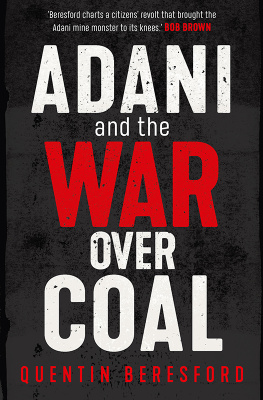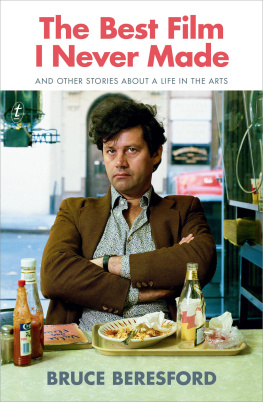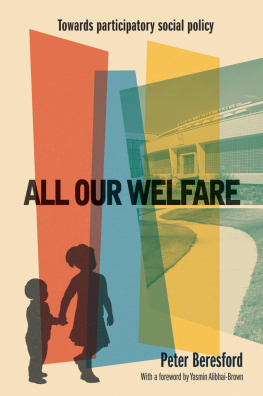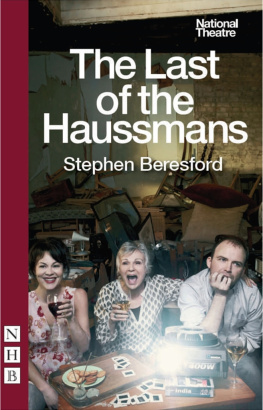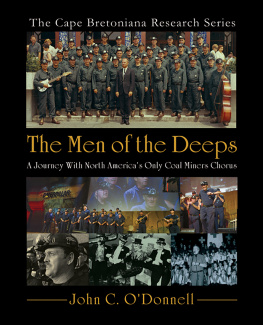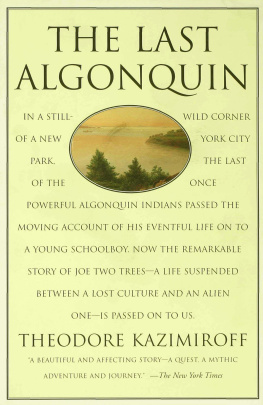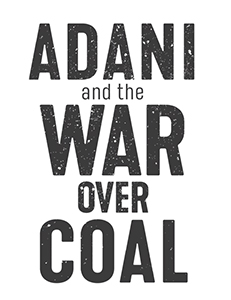
QUENTIN BERESFORD has had a diverse career in teaching, the public service and journalism. He is the author of several books including Rites of Passage: Aboriginal Youth Crime and Justice (1996); Our State of Mind: Racial Planning and the Stolen Generations (1998), which won the Western Australian Premiers non-fiction prize; the multi-award winning biography, Rob Riley: An Aboriginal Leaders Quest for Justice (2006); The Godfather: The Life of Brian Burke (2008) and The Rise and Fall of Gunns Ltd (2015), which won the Tasmanian Premiers Literary Prize. He is professor of politics at Edith Cowan University in Perth, Western Australia.
To Marilyn and to our grandchildren

A NewSouth book
Published by
NewSouth Publishing
University of New South Wales Press Ltd
University of New South Wales
Sydney NSW 2052
AUSTRALIA
newsouthpublishing.com
Quentin Beresford 2018
First published 2018
10 9 8 7 6 5 4 3 2 1
This book is copyright. Apart from any fair dealing for the purpose of private study, research, criticism or review, as permitted under the Copyright Act, no part of this book may be reproduced by any process without written permission. Inquiries should be addressed to the publisher.

A catalogue record for this book is available from the National Library of Australia
ISBN 9781742235936 (paperback)
9781742244228 (ebook)
9781742248646 (ePDF)
Design Josephine Pajor-Markus
Cover design Luke Causby, Blue Cork
Map Josephine Pajor-Markus
Printer Griffin Press
All reasonable efforts were taken to obtain permission to use copyright material reproduced in this book, but in some cases copyright could not be traced. The author welcomes information in this regard.
This book is printed on paper using fibre supplied from plantation or sustainably managed forests.
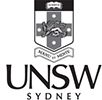
Contents
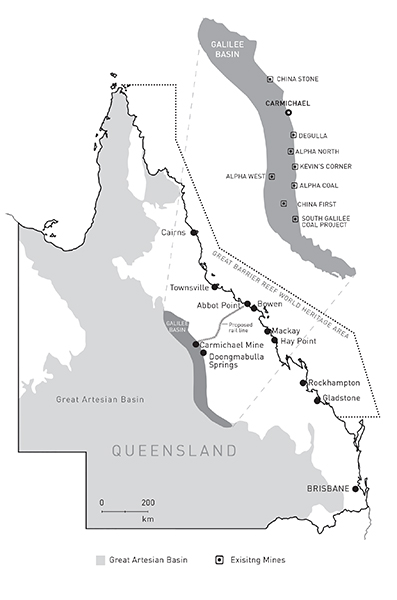
Introduction
O n 9 February 2017, federal Liberal Treasurer Scott Morrison rose from his parliamentary front-bench seat and delivered one of the most colourful but disturbing political stunts in recent federal Parliamentary history. Clutching a lump of black coal, the burly, sports-loving and pugnacious minister ridiculed the Labor Oppositions recent call for a higher renewable energy target, amid new record summer temperatures.
The coal had been supplied by the Minerals Council of Australia, a key backer of the conservative side of politics, and it had been conveniently coated with lacquer so as not to blacken the ministers hand. In a performance that went beyond mocking the fear of climate change into a defiance of nature itself, Morrison, amid guffaws of laughter from his colleagues, teased the Labor Party: Dont be afraid, dont be scared, it wont hurt you, its coal. He accused the Opposition of coal-o-phobia. Morrison then handed the non-blackening coal around members of the front bench as if they were all in on the stunt. Photographs of Morrison holding aloft his lump of coal show fellow Liberal minister Christopher Pyne smirking and a cartoonish laugh breaking across the face of National party leader, Barnaby Joyce.
In addition to trying to wedge Labor over its traditional links with the mining workers union, the Construction, Forestry, Mining and Energy Union, the artefact from the fossil fuel age was intended to resonate with the federal Coalitions base, where denial of climate
Afterwards, Morrison appeared on radio shock-jock Ray Hadleys 2GB program. Hadley, a prominent climate change denier, shared a joke with his guest about the stunt. Amid the mutual jocularity, Morrison had a point to make: We have no more a fear of coal than we have a fear of wind, or solar, or wave energy, or pump-hydro, or whatever the option is.
Played across the various media outlets, Morrisons coal antics sent yet another message that the federal Liberal Party and its Coalition partner, the Nationals, were avowedly pro-coal.
Morrisons performance drew some harsh criticism from the mainstream press. The Canberra Times commented:
Hailing coal arguably the single-largest contributor to man-made climate change as the solution to our hot-weather energy needs was so counter-intuitive that commentators and social media could not help drawing parallels with the alternative facts debate across the Pacific [that is, the United States under Donald Trump].
Respected business journalist Alan Kohler was even more scathing. Widely known and admired for his informative finance report on ABC TV news, Kohler describes being infuriated and dismayed by that stunt.energy crisis engulfing the country was entirely the Liberal Partys fault. The problem, as he saw it, was straightforward. Since cutting down Malcolm Turnbull as leader in 2009 and replacing him with Tony Abbott, the Liberal Party had been transformed into fervently pro-coal activists. Kohler crisply recapped these historic events as the shift from bipartisanship on an emissions trading scheme (ETS) to Abbotts hyper partisan opposition to the policy.
After the 2007 federal election, both the new Labor government under Kevin Rudd and the Liberal Opposition under Malcolm Turnbull supported an ETS.
Morrisons antics revived the coal wars that had been simmering for years. Wrapped up in the complex, often bitter debates about climate change and about energy policy, coal is in many ways the political, economic and cultural totem for these broader questions: what to do about Australias vast reserves of coal, and the powerful corporations that mine the resource in an age of global warming? As astute commentators noted, the Liberal Party had unapologetically taken up one side of this conflict and it had been cheered on by some powerful forces, including the nations shock-jock media.
In his article, Kohler was right to question how Australia had gotten itself into this mess. Australia sits on a mother lode of coal but the industrys contribution to the national economy is relatively small, despite the best efforts of the Minerals Council of Australia to bolster the figures. From a peak in 2012, when coal represented 4.5 per cent of GDP, by 2016 this had shrunk to 2 per cent and comprised less than 1 per cent of total employment and federal taxes.
Yet it is not surprising that coal looms large in the national imagination. We have become a coal nation. Approximately 70 per cent of Australias electricity is generated by coal and we are the worlds leading exporter of coal in an industry that still produces around 40 per cent of global electricity. Exports of coal constitute 30 per cent of export income which, together with iron ore, fuel the national narrative propelled by the mining lobby that mining is the engine of Australian economic growth and prosperity. The export coal industry has been on an inexorable growth path since the first exports in the late 1950s to the emerging economies of East Asia.
However, the commanding position of coal in the national narrative has left Australia with a deep conundrum. The industry has been put on notice by the international agreements to deal with climate change and by the corresponding rise of the renewable energy industry.
Next page
